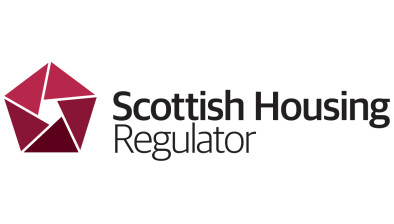RSL finances ‘weakened’, but Regulator projections show ‘medium-term improvement’

A new report by the Scottish Housing Regulator (SHR) has concluded that the finances of registered social landlords (RSLs) finances have weakened, resulting in less financial headroom, but forecasts have predicted some improvement in the medium term.
Reflecting the corresponding RSL business plan period, the Regulator’s report is a summary of the aggregated financial plans of RSLs for the next five years.
It states that RSLs’ annual turnover is forecast to increase by an average of 1.7% (2023, 1.0%) more than operating costs.
The forecast over the five years to 2028/29 also includes:
- net assets to grow by an annual average of 3.7% (2023, 3.9%), with modest growth of 2.5% in 2024/25 increasing to 4.3% in 2028/29
- taking aggregate net housing assets to £19.99 billion (2023, £19.30bn), and net assets to £5.72bn (2023, £5.59bn);
- net cash from operating activities to increase significantly to £911.1 million by 2028/29;
- significantly reduced cash reserves, although still at a healthy level, with an aggregate closing cash balance of £561.3m at March 2024 (2023, £801.0m) dropping to £509.0m by March 2029;
- interest cover remaining healthy, but lower than forecast in the 2023 returns;
- rent arrears marginally up but then steadily reducing, from 3.4% in 2024/25 to 3.0% by 2028/29;
- significant capital expenditure of £1.91bn on existing homes, an average of more than £5,700 per property;
- estimated decarbonisation costs in the period to 2030 could range from £4.8bn to £9.6bn, while RSLs’ projections include just £154.6m; and
- a projected 22,600 new homes, to be funded primarily by £2.49bn of social housing grant (53% of total cost) and £1.91bn of private finance (40% of total cost).
Shaun Keenan, assistant director of financial regulation, said: “RSLs are operating in the most challenging landscape we’ve seen. They continue to face significant pressures including from market volatility, cost increases, higher borrowing costs, supply issues and labour shortages.
“At the same time, they continue to work to deliver quality homes and services for tenants and service users, meet challenges around net zero standards and keep tenants’ rents affordable.
“Whilst RSLs have worked to weather the challenges and the financial projections indicate a slight improvement in the medium term, finances at the aggregated level have weakened. We are engaging with more RSLs on financial matters than in the past, but most are still managing the financial pressures, albeit with tightening finances.
“As a result, RSLs have reduced capacity to respond to emerging costs, like National Insurance increases, which are not included in these projections. This means that governing bodies will continue to face some difficult choices and trade-offs as they prioritise expenditure. We will continue to engage with RSLs as they work to tackle the challenges ahead.”






